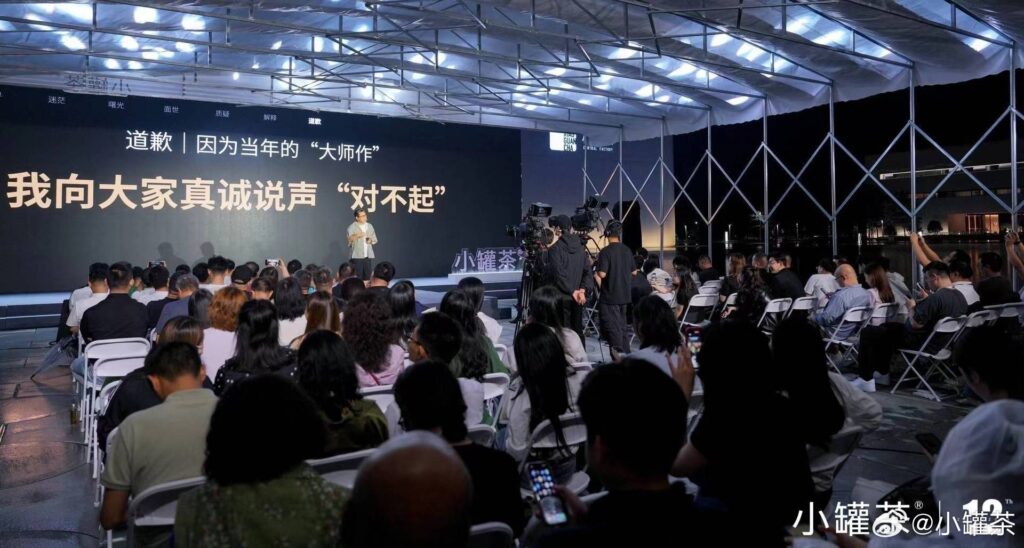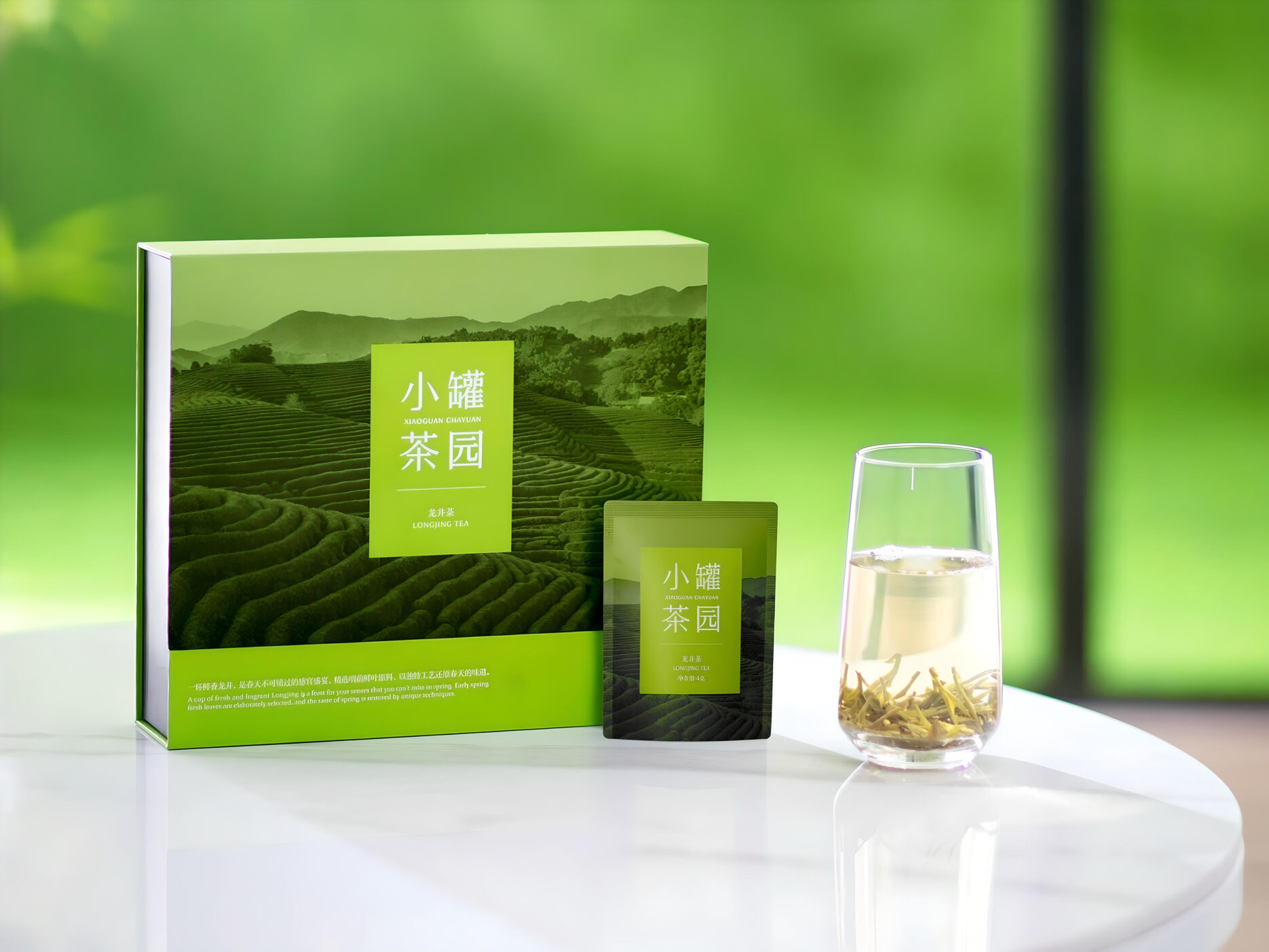On 26 June, the topic #Xiaoguantea founder apologised# trended on Weibo, garnering 110 million views. The founder Du Guoying addressed the long-standing controversy surrounding the “artisanal tea” (大师作) label at the brand’s 12th-anniversary event. Du stated, “I solemnly apologise to everyone.”
From a consumer’s perspective, the term “artisanal tea” misleadingly suggests that each tin of tea is handcrafted, which is not the case. Du clarified that Xiaoguantea has been dedicated to digitising its master craftsmanship for years and announced that its 135 tea-making patents have been open-sourced to the community at no cost. The new tea brand, CHAGEE, has become the first Xiaoguantea patent open-sourcing partner.
Since its inception, Xiaoguantea has marketed itself with the slogan “high-end quality, craftsman tea-making,” drawing significant attention with a 3-minute-long “Xiaoguantea, artisanal tea” advertisement on China Central Television programmes in 2017. Sales in 2018 exceeded 2 billion RMB (approx. 0.28 billion USD). However, in 2019, Xiaoguantea faced doubts. The sales implied that a craftsman could fry 110kg (220斤) of tea every day without rest, which is implausible.

In response, Xiaoguantea released a statement clarifying that “artisanal tea” refers to the application of artisanal skills, not the literal hand-frying of tea by craftsman. The tea craftsmen serve as “chief product managers,” working with Xiaoguantea to set product standards and oversee the raw material selection and production process, while modern equipment handles the bulk of the labour-intensive work. Despite this explanation, Xiaoguantea’s reputation for “excessive marketing” persisted. Consequently, the company changed its slogan from “Xiaoguantea, artisanal tea” to “Honoured guests are here, Xiaoguantea.”
Xiaoguantea has undeniably advanced the “industrialisation” of tea, largely due to Du Guoying’s extensive marketing expertise. Since 1997, Du has founded several renowned brands, including “Beibeijia,” a product for correcting hunchbacks, “Haojixing,” an electronic dictionary, and 8848 mobile phones for high-end businesspeople. Each of Du’s ventures has successfully captured market trends through strategic positioning and marketing.
Xiaoguantea’s rise can be attributed to Du’s master marketing strategy, which involved extensive research and collaboration with eight national tea masters to craft the brand’s narrative. Initially, Xiaoguantea’s products were priced significantly higher than the market average, with prices ranging from 50 RMB (6.88 USD) per can to 12,500 RMB (1,719.68 USD) per kilogram, compared to the average market price of 260 RMB (35.77 USD) per kilogram.
Despite Du’s public apology, Xiaoguantea continues to pursue the “artisanal” trademark. Public records indicate that the company has successfully registered several trademarks, including “small pot master” and “Xiaoguantea, artisanal tea.”









